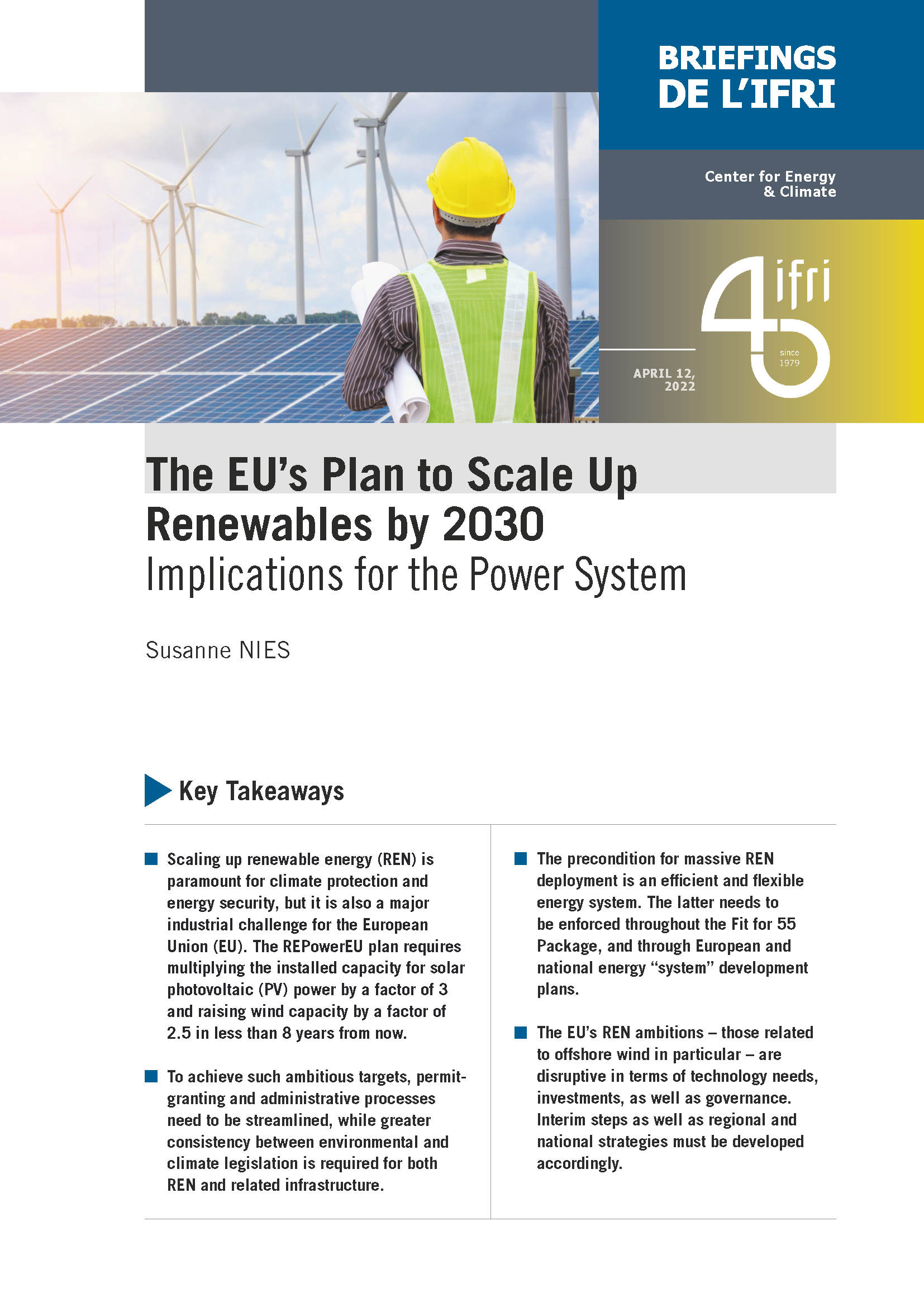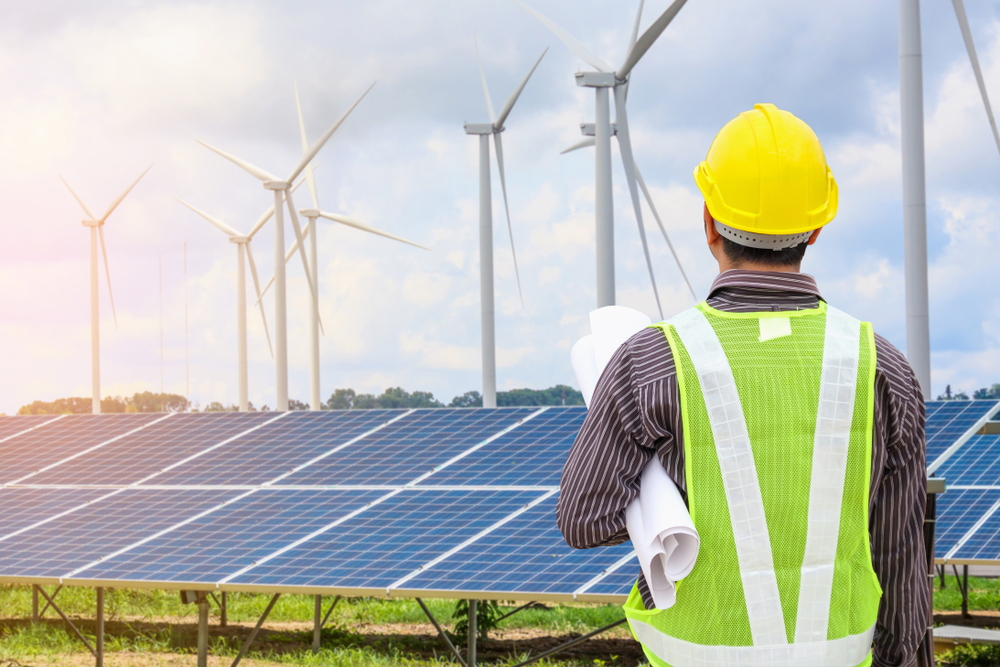The EU’s Plan to Scale up Renewables by 2030: Implications for the Power System

The climate and geopolitical crises call for speeding up the implementation of the European Green Deal around two main pillars: reducing energy consumption and investing in low-carbon alternatives. The swift and massive deployment of renewable energies (REN) is a major industrial challenge for the European electricity system.

• Scaling up renewable energy (REN) is paramount for climate protection and energy security, but it is also a major industrial challenge for the European Union (EU). The REPowerEU plan requires multiplying the installed capacity for solar photovoltaic (PV) power by a factor of 3 and raising wind capacity by a factor of 2.5 in less than 8 years from now.
• To achieve such ambitious targets, permit-granting and administrative processes need to be streamlined, while greater consistency between environmental and climate legislation is required for both REN and related infrastructure.
• The precondition for massive REN deployment is an efficient and flexible energy system. The latter needs to be enforced throughout the Fit for 55 Package, and through European and national energy “system” development plans.
• The EU’s REN ambitions – those related to offshore wind in particular – are disruptive in terms of technology needs, investments, as well as governance. Interim steps as well as regional and national strategies must be developed accordingly.
Download the full analysis
This page contains only a summary of our work. If you would like to have access to all the information from our research on the subject, you can download the full version in PDF format.
The EU’s Plan to Scale up Renewables by 2030: Implications for the Power System




